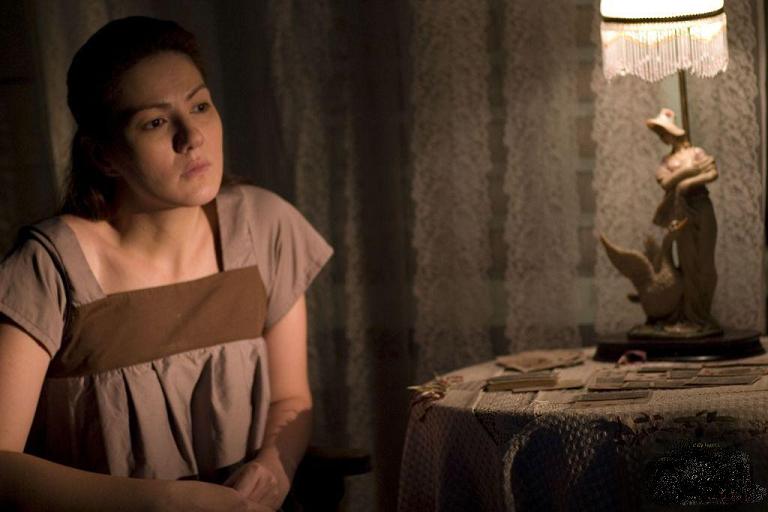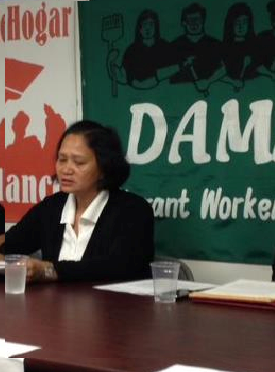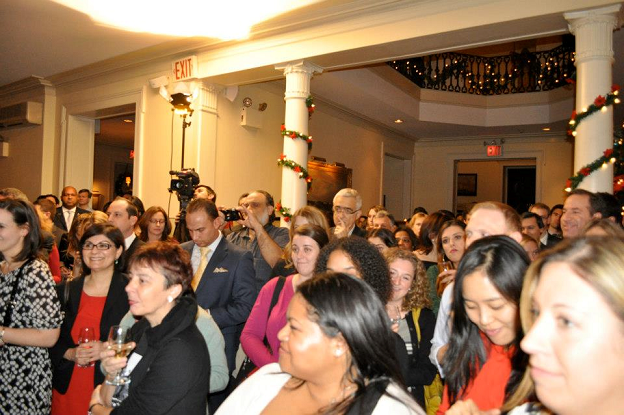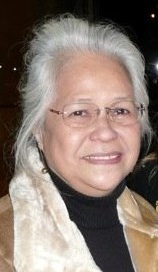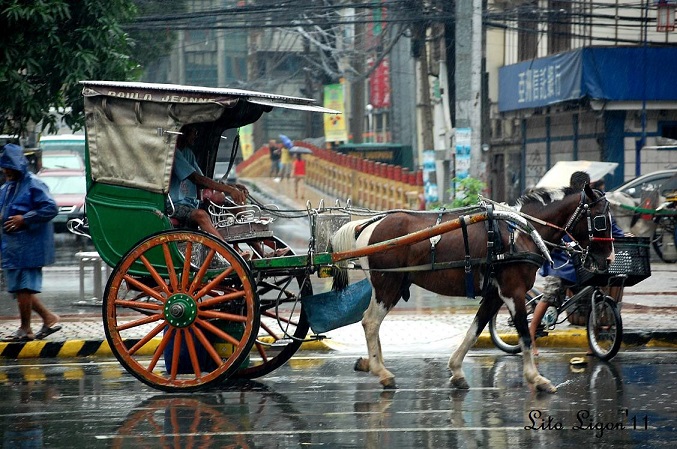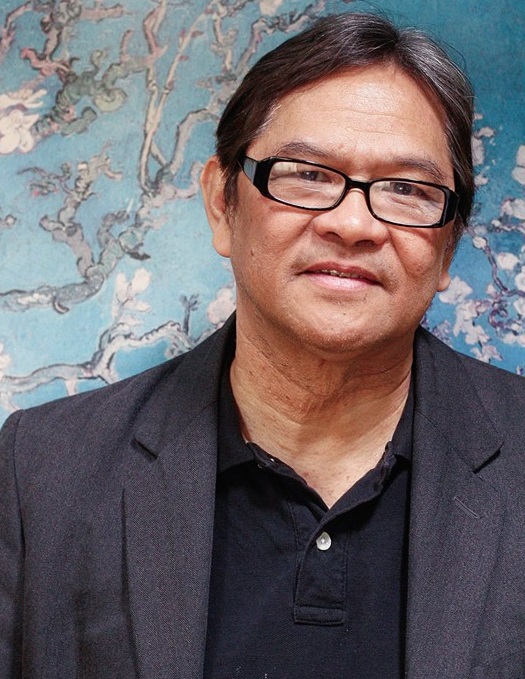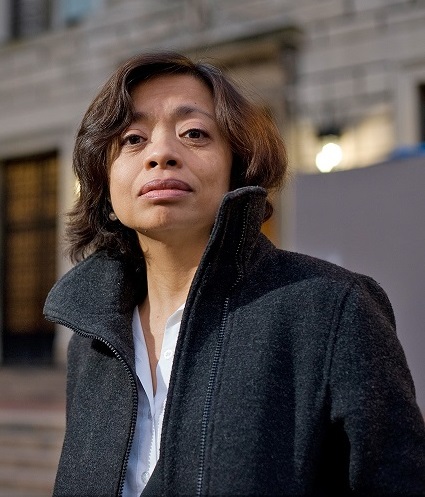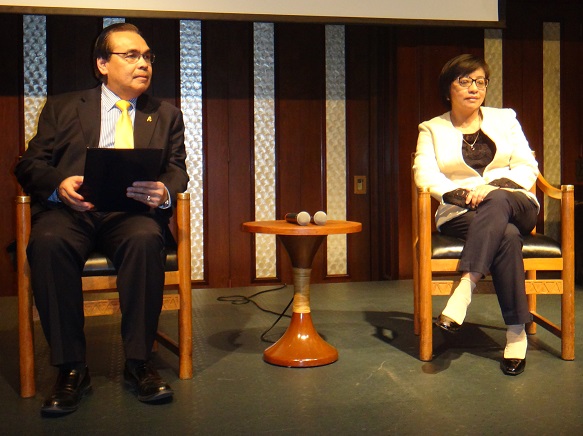‘We know we’re not dealing with angels:’ Miriam Coronel-Ferrer

The chief government negotiator with the MILF at a public forum held at the Philippine Consulate. The FilAm Photo
There are 11 steps toward the creation of an autonomous Bangsamoro region by 2016. So far, the Philippine government is only at Step 4, which is the certification of the proposed Bangsamoro Basic Law (BBL) as an urgent piece of legislation.
But something happened that is preventing it from moving forward to Step 5, which is the passage of the BBL in Congress.
In the early morning of January 25, the Special Action Forces (SAF) of the Philippine National Police had an armed encounter with the Moro Islamic Liberation Front (MILF) in Mamasapano town in Maguindanao. About 70 people – including 44 SAF troopers — were killed. Some in the Philippines, including lawmakers, are now in doubt whether to pursue a peace agreement with the MILF.
Chief negotiator for the Philippine Government, Prof. Miriam Coronel-Ferrer, has been traveling the U.S. – California, Washington D.C., and New York – explaining why the Mamasapano incident need not derail the pathway to peace. Without it, fighting will resume and more lives will be lost. About 120,000 Filipinos have already died in Mindanao since the 1970s when the conflict in the region was at its most intense, she said.
She explained at a public forum held at the Philippine Consulate why Filipinos should look at the “big picture.”
Throughout history, she said, Muslim Mindanao has defied the colonial powers and stayed true to its indigenous roots and tradition. For this reason, it has never fully integrated with the rest of the country.
“The Muslims have refused to be called Filipinos” because that is not the identity they identified with, she said.
But a series of peace initiatives – beginning with the Moro National Liberation Front (MNLF) of Nur Misuari in the 1970s — have led them to engage in a form of cooperation with the government. In the end, they gave up the armed struggle as a way to self-determination, and some MNLF leaders are now elected as members of Congress.
“The leaders of the MNLF are now on board,” she said. “We’re no longer at war with the MNLF.”
The BBL, currently being negotiated with the MILF, has the same objective, which is to “normalize” relations with the government and for the MILF to “participate in meaningful autonomous governance.”
Coronel-Ferrer maintained the war being waged by the MILF is “not a religious conflict.” If it were, it would have been more complicated.
“It’s a political ethno-nationalist conflict as they identify themselves differently and want people to acknowledge their unique identity,” she explained.
As if in reflection, she said Mindanao is a “microcosm” of the entire country.
She said, “There is a rich Mindanao and a poor Mindanao.” ‘Rich Mindanao’ being the urbanized cities led by Davao and General Santos City, and ‘poor Mindanao’ being the region controlled by the MILF, which is about 20 percent of the entire island. By providing autonomy “not independence,” the region will be allowed to govern itself, be its own leaders and have rules that acknowledge their unique identity.
She is constantly reminded, she said, that the panel is “not dealing with angels.” The MILF is a major rebel group with about 30,000 combatants now bigger than the communist New People’s Army (NPA). And yet they agreed to come to the table, participate in the peace process and discipline their ranks. (The NPA strength is estimated at 3,200 fighters as of 2014, according to reports quoting the Philippine Army.)
The road to peace has not been easy but worth all the effort, she said. With peace comes the full development of Mindanao by tapping its potential in oil, agriculture and fisheries. The business community, such as the Makati Business Club, she said, supports the BBL. It has urged Congress to “resume discussions on the Bangsamoro Basic Law at the earliest time.”
The Mamasapano operation is not enough to end the quest for peace and “heal the wounds of centuries of conflict.”
“The BBL is much bigger than Mamasapano,” she stressed.
In welcoming Coronel-Ferrer to the Philippine Consulate, Consul General Mario de Leon Jr. said he remained hopeful that the peace process will “continue to its logical settlement guided by the hope, confidence building, and the trust of all parties.”

